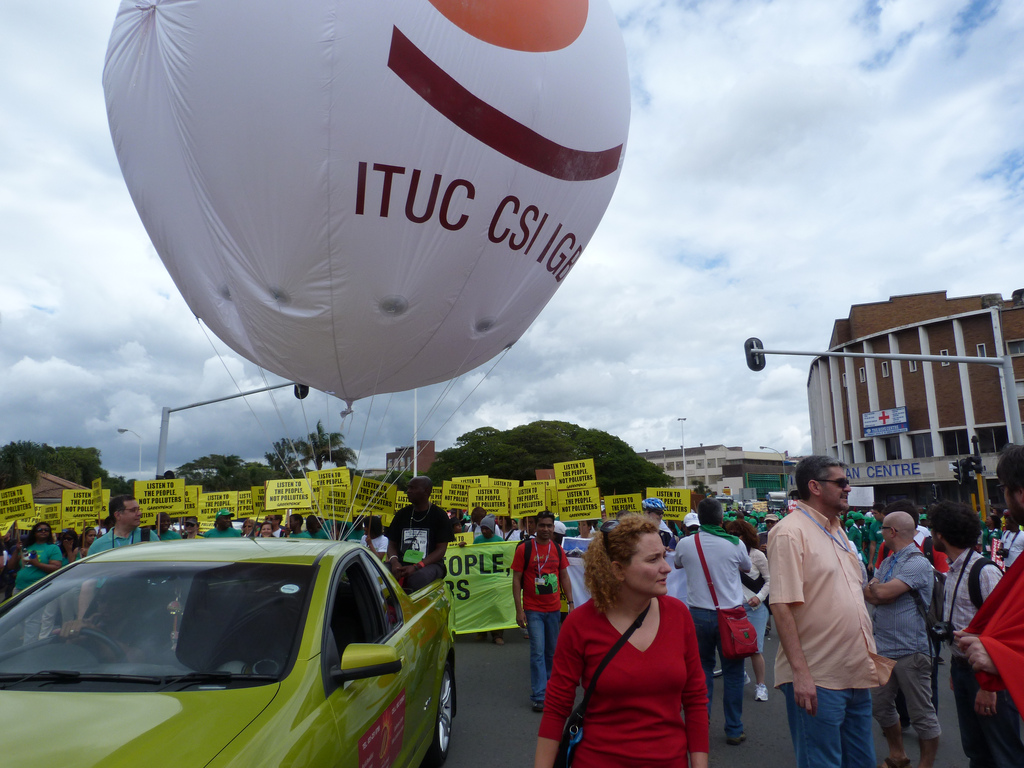ITUC latest Economic Brief urges a policy shift away from austerity

The International Trade Union Confederation (ITUC) published the second ITUC TUAC Economic Briefing part of a series of regular briefings on the economic situation in Europe and around the globe. The Economic Briefing series provides an easy-to-read analysis of global economic trends allowing trade unionists to get in-depth insights to assist them in their advocacy actions to shift the policy focus away from austerity towards economic growth and job creation.
The recent Economic Briefing highlights a dire economic and social policy state-of-play, questioning further issued optimistic forecasts and fundamentals of the arguments for austerity. The Briefing identifies alarming trends that have only worsened since the onset of the crisis:
- The Briefing highlights the bleak economic outlook for the Euro area which also slows down global recovery.
- While non European players, like the United States and Japan, have been able to put their economies back on track through bold measures, the stalemate and inaction in Europe continues to impoverish large parts of society.
- As the crisis continues unabated, more and more of the Euro-zone’s once solid economies are dragged into recession or stagnation, as has recently happened with France, Finland and the Netherlands.
- Ill-conceived austerity polices remain the main obstacle in the way of economic recovery in Europe and beyond.
- European crisis countries (Greece, Spain, Italy, Cyprus, Portugal) and more hang about in free fall
- The main objective of austerity policies (bringing down debt-to-GDP ratio) has failed. Countries like the UK, Greece, Spain, and Portugal which have applied strident austerity measures actually have witnessed significant increases in debt-to-GDP ratio.
- Despite the academic and political discussions questioning the effects of fiscal multipliers and the role of public debt levels in economic recovery, austerity measures have only been slowed down in some cases excluding any possibility of a fundamental policy shift.
- For labour markets, the Briefing foresees a further increase of unemployment in Europe and neighbouring countries in the course of 2013, an increase of global youth unemployment rates, an upsurge in precarious work, temporary and part-time employment contracts, and an upsurge in wage inequality and polarisation.
The ITUC TUAC Economic Briefing also illustrates the dramatic consequences of austerity on workers and citizens in terms of health effects, purchasing power, and psychological state. Like the UNI Europa Troika Watch shows clearly (check out the webpage at: https://www.facebook.com/TROIKAWATCH), excessive fiscal contraction is causing millions in Europe and beyond, to loose their jobs, homes, and hope. The ITUC TUAC analysis exemplifies how the dire situation in Europe slows down international trade and investment; a policy failure that is felt worldwide in the form of lacking growth and employment prospects.
The ITUC TUAC economic briefing clearly shows that Trade Unions must urgently pursue their push for alternative economic policies. The Economic Briefing of our colleagues can be accessed in the Related Files tab along with the UNI Europa’s positions on economic governance.

